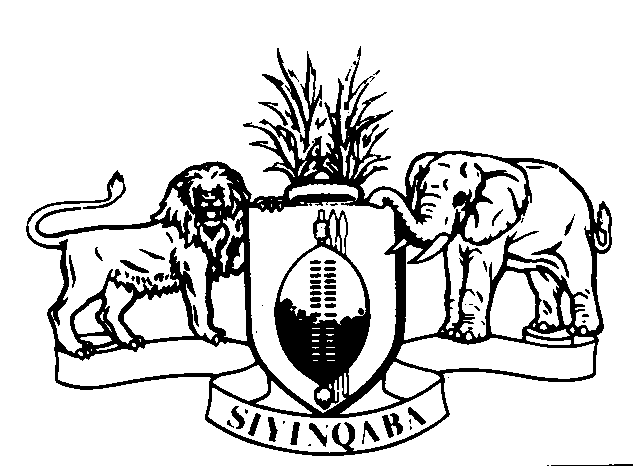3

INDUSTRIAL COURT OF APPEAL OF SWAZILAND
COMMISSIONER OF TAXES
Appellant
Vs
MPAPANE, ROGER
1st Respondent
ROMAN DLAMINI N.O.
2nd Respondent
Appeal Case No. 10/2001
Coram SAPIRE, JP
MATSEBULA, JA
MAPHALALA, JA
For Appellant P. Flynn
For Respondents A. Shabangu
JUDGMENT
(04/02/2003)
In this case the facts giving rise to the dispute are very similar to those, which obtained in a High Court Case, which I decided last year, namely, Mahlalela vs. The Swaziland Royal Insurance Corporation, and Commissioner of Taxes.1 That case was decided in the High Court.
The first question, which we are compelled to address, is whether or not the Commissioner of Taxes can bring any claim in the Industrial Court. On a proper reading of Section 8 there the Commissioner is not one of the parties on whose disputes the court is empowered to adjudicate, The Section which reads as follows
Jurisdiction.
8. (1) The Court shall, subject to sections 17 and 65, have exclusive jurisdiction to hear, determine and grant any appropriate relief in respect of an application, claim or complaint or infringement of any of the provisions of this, the Employment Act, the Workmen’s Compensation Act, or any other legislation which extends jurisdiction to the Court, or in respect of any matter which may arise at common law between an employer and employee in the course of employment or between an employer or employers’ association and a trade union, or staff association or between an employees’ association, a trade union, a staff association, a federation and a member thereof.
(2) (a) An application, claim or complaint may be lodged with the court by or against an employee, an employer, a trade union, staff association, an employers’ association, an employees’ association, a federation, the Commissioner of Labour or the Minister;
(b) The Court may consolidate claims for the purpose of hearing witnesses, as appropriate.
(3) In the discharge of its functions under this Act, the Court shall have all the powers of the High Court, including the power to grant injunctive relief.
(4) In deciding a matter, the Court may make any other order it deems reasonable which will promote the purpose and objects of this Act.
(5) Any decision or order by the Court shall have the same force and effect as a judgment of the High Court and a certificate signed by the Registrar shall be conclusive evidence of the existence of such decision or order.
(6) Any matter of law arising for decision at a sitting of the Court and any question as to whether a matter for decision is a matter of law or a matter of fact shall be decided by the presiding judge of the Court provided that on all other issues, the decision of the majority of the members shall be the decision of the Court.
(7) In the exercise of its powers under this, the Court shall take into consideration any guidelines relating to wage and salary levels and other terms and conditions of employment that may from time to time be prevailing in Government and other related or relevant industries or enterprises.
refers to a number of categories of possible parties to litigation in the Industrial Court, among them is certainly not the Commissioner of Taxes. The subject matter too is not contemplated in the section vesting limited albeit exclusive jurisdiction on the court.
The Commissioner of Taxes was granted leave to intervene in the dispute, which concerned the right or duty of the employer to deduct certain amounts from a payment to the employee in terms of the income tax act between, such leave was wrongly granted. Clearly the Appellant has no locus standi in the Industrial Court.
As far as the merits of the matter are concerned, we have seen no reason to differ from what was ruled in the High Court and indeed I do not think it is open for this court to differ from the High Court, its decisions being subject to an appeal to the Appeal Court. This court is the final court of Appeal on points of law arising in the Industrial court in disputes between parties falling within categories described in Section 8
Accordingly this appeal is Dismissed..
SAPIRE, JP
I AGREE MATSEBULA, JA
I AGREE MAPHALALA, JA
1 Civ Case No 2810/2001